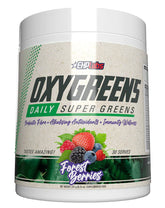How Much Protein Do You Need Per Day?
When it comes to building muscle, losing fat, or simply staying healthy, protein isn’t just important, it’s a non-negotiable. Protein is the building block of muscle, the backbone of recovery, and a critical piece of the puzzle for anyone who wants to perform, look, and feel their best.
But here’s the thing: most people are under-eating protein. Some because they don’t know how much they need, others because they’ve been misled by outdated guidelines. This article is going to fix that.
Why Protein Matters
Protein does a lot more than just help you build muscle. It plays a critical role in:
- Muscle repair and growth
- Hormone production
- Immune system function
- Enzyme activity
- Satiety and fat loss support
When you under-consume protein, your body doesn't have enough raw material to rebuild tissue, regulate hormones properly, or maintain lean mass - especially when dieting.
When you over-consume protein? In most healthy individuals, your body adapts just fine.
So the question isn’t whether you need protein — it’s how much.
How Much Protein Do You Actually Need Per Day?
General Recommendations
If you look at the standard government guidelines like the RDI (Recommended Daily Intake), you’ll see numbers like 0.8 grams of protein per kilogram of body weight per day. This is the minimum amount to prevent deficiency - it’s not the optimal amount for athletes, gym-goers, or anyone who wants to improve body composition.
If you want to build muscle, lose fat, or perform well, here’s where you should actually be aiming:
- For fat loss and muscle retention: 1.8 – 2.7 g/kg of body weight per day
- For muscle gain: 1.6 – 2.2 g/kg of body weight per day
- For general health and maintenance: 1.2 – 1.6 g/kg of body weight per day
Practical Example:
Let’s say you weigh 80kg and you’re trying to build muscle.
You should aim for:
-
1.6 – 2.2 g/kg × 80 kg = 128 – 176 grams of protein per day
If you’re in a fat loss phase:
-
1.8 – 2.7 g/kg × 80 kg = 144 – 216 grams of protein per day
Why higher during fat loss? Because when you’re eating in a calorie deficit, your body needs more protein to preserve muscle mass.
How Protein Requirements Change Based on Goals
1. Muscle Gain
When you’re bulking, your body is flooded with calories, and a moderate protein intake will do the job. Aim for 1.6 to 2.2 g/kg. Pushing it higher won’t necessarily build more muscle but could help with appetite regulation.
2. Fat Loss
When calories are low, protein becomes your best friend. Aim higher - closer to 2.2 – 2.7 g/kg. This helps preserve lean mass, keeps you fuller for longer, and helps offset the catabolic (muscle-burning) effects of dieting.
3. Maintenance
If you’re not chasing fat loss or muscle gain, you can still benefit from a higher protein intake than the government minimum. Somewhere between 1.2 – 1.6 g/kg will support muscle turnover, recovery, and health.
What Happens If You Eat Too Much Protein?
Let’s kill a myth right now:
Eating too much protein does NOT damage your kidneys - if you’re healthy.
This fear came from studies done on people who already had kidney disease. For healthy people, high protein diets are well-tolerated and have no harmful effect on kidney function.
In fact, eating more protein can:
- Help you stay leaner because protein has a high thermic effect (your body burns more calories digesting it).
- Keep you fuller longer.
- Protect muscle tissue when in a calorie deficit.
The only “problem” with high protein diets? They can make it harder to fit in carbs and fats if your total calories are low.
Common Mistakes People Make with Protein Intake
-
Only focusing on total daily intake, not meal distribution.
Eating 150g of protein in one meal isn’t as effective as spreading it across the day. -
Under-eating protein at breakfast.
This usually leaves people scrambling to hit their target later in the day. -
Thinking plant protein doesn’t count.
It does. It just has slightly less muscle-building impact per gram compared to animal protein, but variety is key. -
Believing the kidney myth.
Unless you have pre-existing kidney issues, this is a non-issue.
Final Takeaways
-
The RDI is the minimum, not the target.
-
Your protein needs depend on your goal:
Higher for fat loss, moderate for building muscle, and lower (but still above RDI) for maintenance. -
The sweet spot for most active people:
1.6 – 2.2 g/kg body weight per day. -
Protein timing and distribution matters.
Spread your intake across the day for best results.
When in doubt? Aim high. Protein is one of the easiest things to fix in your diet that can lead to serious changes in how you look, perform, and feel.
Editor’s Picks
OxyWhey by EHP Labs
- $68.90
$89.90- $68.90
- Unit price
- / per
Gold Standard 100% Whey by Optimum Nutrition
- From $71.90
$85.90- From $71.90
- Unit price
- / per
OxyShred by EHP Labs
- $61.90
$79.90- $61.90
- Unit price
- / per
OxyGreens by EHP Labs
- $46.90
$57.90- $46.90
- Unit price
- / per
IsoPept by EHP Labs
- $74.90
$99.90- $74.90
- Unit price
- / per















